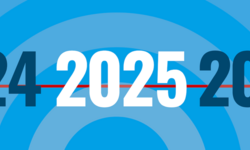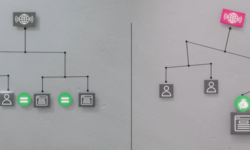
The European Commission threatens to undermine the core values of the free and open internet
On 8 June, 34 civil society organisations from 17 countries published a joint statement to raise their concerns with Commissioner Margrethe Vestager’s and Commissioner Thierry Breton’s public statement to alter the regulatory framework underpinning the free and open internet.
The Commissioners showed an intention to start charging Content and Application
Providers for the use of internet infrastructure. This goes against the fundamental net neutrality principles and core protections in the European Union. Over the past ten years, these proposals have been discussed extensively and always rejected by governments, legislators, and regulators in Europe and around the world. Today, nothing has changed to legitimise the sacrifice of the free and open internet to satisfy the interests of the telecom industry.
European internet users maintain a widespread desire to use the applications, content, and services offered by large content providers. In fact, due to advances in networking technology, the cost of deploying and operating network infrastructure has dropped dramatically, allowing ISPs to deploy more and faster broadband infrastructure at significantly lower costs. Thus, the economic and technical conditions at present
weigh even more strongly against the introduction of such fees than during prior debates.
The ‘Sending Party Pays’ model that the European Commission is considering for the internet is the exact same model that resulted in 4 to 5 euros per minute for international phone calls. These calls were expensive because phone companies had a monopoly over access to their customers. This allowed them to charge monopoly prices for completing international calls, and international carriers had no choice but to pay or be denied access. Broadband providers have the same monopoly over their customers, and the proposals the European Commission is considering would allow them to exploit that monopoly when charging content providers for access.
The proposal will harm freedom of expression, freedom to access knowledge, and freedom to conduct business and innovation in the EU. It will hurt Europe’s internet economy and create unprecedented bureaucratic barriers that will slow growth in a recovering economy. That’s why 34 civil society organisations urge Commissioner Vestager and Commissioner Breton to challenge the short-sighted and self-interested demands of the telecom industry and to ensure a free and open internet.
The full open letter is published here and below:
Dear Commissioner Vestager,
Dear Commissioner Breton,The 34 civil society organisations from 17 countries that have signed this open letter are deeply concerned about your public statements from 2nd May 2022 that appeared to aim at drastically altering the regulatory framework underpinning the free and open internet. Charging Content and Application Providers for the use of internet infrastructure would undermine and conflict with core net neutrality protections in the European Union, rivaling the Trump administration’s attempt to eliminate net neutrality protections in the U.S.
Large European telecom companies have been lobbying for the ‘Sending Party Pays’ proposals you are considering since 2012. Over the past ten years, these proposals have been discussed extensively and consistently rejected by governments, legislators, and regulators in Europe and around the world—and rightly so.
Nothing has changed that would merit a different response this time – European internet users maintain a widespread desire to use the applications, content, and services offered by large content providers. In fact, due to advances in networking technology, the cost of deploying and operating network infrastructure has dropped dramatically, allowing ISPs to deploy more and faster broadband infrastructure at significantly lower costs.[1] Thus, the economic and technical conditions at present weigh even more strongly against the introduction of such fees than during prior debates.
This makes it even more shocking that the Commission suddenly voices support for these proposals – with no public process or consultation with public interest groups, regulators, internet-based companies or small businesses.
In 2012, the ITU extensively discussed the ‘Sending Party Pays’ model you are considering. The OECD unequivocally rejected the proposal.[2] BEREC has extensively investigated Europe’s inter-connection markets[3] on numerous occasions[4] and in 2012 rejected ETNO’s ‘Sending Party Pays’ proposal as unfair, unnecessary and unworkable. Ultimately, various European governments and their allies prevented the ITU from adopting the proposal. Even the European Commission rejected the idea on similar grounds.
To be clear, the ‘Sending Party Pays’ model you are considering for the internet is the same model that resulted in 4 to 5 Euros per minute international phone calls. These calls were so expensive because phone companies had a monopoly over access to their customers. This allowed them to charge monopoly prices for completing international calls, and international carriers had no choice but to pay up or be denied access. Broadband providers have the same monopoly over their customers, and the proposals you are considering would allow them to exploit that monopoly when charging content providers for access. This is why historic and current net neutrality protections in the USA[5], India[6] and the EU[7] prohibit the exact charges you are proposing.
While it’s tempting to think that these monopoly fees would be used to improve network infrastructure, the evidence suggests the opposite. A study of the countries that charged the highest telephony access fees found a negative correlation between high fees and advanced telecom infrastructure deployment. In other words, high access fees harmed infrastructure deployment instead of fostering it.
In your statements you speak of “players who generate a lot of traffic” and demand fair contribution of those players to the telecom industry. But this demand seems to be based on a fundamental misunderstanding of how the internet works. European internet users are generating the traffic that is flowing over Europe’s access networks, and they pay their ISPs to transport the data from content providers to their devices. Meta, Alphabet, Apple, Amazon, Microsoft, and Netflix send data packets to European internet subscribers because Europeans use their services and are requesting the websites, videos, and apps these companies offer. The EU’s net neutrality law allows Europeans to use the bandwidth they buy from their ISPs however they want – whether for Netflix, YouTube, Facebook, or for a small, local site or service. Thus, European telecom companies are already compensated by their own internet service customers for transporting this data over their access networks; they simply want to be paid twice for the same service.Content providers, in turn, already pay to transport their content, applications, and services across the internet and to deliver it to last-mile ISPs close to the end user who requested it. Large content providers invest heavily in content delivery networks and the necessary infrastructure to do so. They already pay a substantial share of the overall costs of internet infrastructure.
Ironically, until the European Court of Justice recently prohibited the practice of Zero-Rating[8], telecom companies in all but two EEA countries were incentivising traffic from Big Tech companies by not counting that traffic towards their subscribers’ data volume, effectively encouraging their customers to use more—and even unlimited—data from the Big Tech companies[9]. Now they are turning around and saying that data will swamp, congest, and ruin their networks. It can’t be both.
Ultimately, it is the success of popular content and application providers that makes European users want to buy more and more data at ever faster speeds, as former Commissioner Neelie Kroes acknowledged. The rapid deployment of very high capacity networks (e.g. fiber optical networks as replacement for legacy copper-based connections) in several Member States shows that subscribers are willing to pay for the infrastructure that allows them to access high-value (and data “consuming”) content such as 4K video streaming.[10] We should do what we can to foster this virtuous cycle, which has powered the growth of the internet over the past decades, not break it.
Were the EU to require termination fees, the harms would ricochet around the global internet and would threaten to splinter it. European telecom companies would demand these fees for access to their networks, and other jurisdictions will likely follow the EU model. Principles of end-to-end and global level playing field would be lost, and the internet would become a ‘splinternet’ in which the provision of cross-border services requires bureaucratic procedures to negotiate terms for accessibility in each and every network.[11] The growth of European startups would be hindered by the necessity to negotiate deals with hundreds of ISPs in EU member states whose customers the startup might want to reach with their service. We understand that the proposal would, at least initially, only apply to very large content providers among the GAFAM companies. Any exception for SMEs below which a company is not required to pay access fees would become a glass ceiling preventing growth, innovation, and competitiveness of the European internet economy.
The idea of access fees has been discussed for decades and has always been discarded, and rightfully so, as dangerous and unworkable[12]. The proposal will harm freedom of expression, freedom to access knowledge, freedom to conduct business and innovation in the EU. It will hurt Europe’s internet economy and create unprecedented bureaucratic barriers that will slow growth in a recovering economy.
Therefore, we urge you not to sacrifice the free and open internet to the short-sighted and self-interested demands of the telecom industry.
Sincerely,
epicenter.works – for digital rights (Austria)
European Digital Rights (EU)
Civil Liberties Union for Europe e.V. (EU)
Electronic Frontier Foundation (USA)
ARTICLE 19 (Global)
IT-Pol (Denmark)
Internet Freedom Foundation (India)
Citizen D (Slovenia)
R3D: Red en Defensa de los Derechos Digitales (Mexico)
ApTI (Romania)
Homo Digitalis (Greece)
Digitalcourage (Germany)
Free Press (USA)
D3 Defesa dos Direitos Digitais (Portugal)
Fitug e.V. (Germany)
Fight for the Future (USA)
majal.org (Middle East & North Africa)
Openculture.agency (Germany)
Aspiration Tech (USA)
Digital Republic (Bulgaria)
Global Innovation Gathering e.V. (Global)
AI for the People (USA)
Electronic Frontier Norway (Norway)
Open Media (Canada)
Open MIC (USA)
The Greenlining Institute (USA)
Chaos Computer Club (Germany)
Open Net Association (South Korea)
MediaJustice (USA)
Data Labe (Brazil)
Freifunk Hamburg (Germany)
mutabiT (Colombia)
Engine (USA)
D64 – Zentrum für Digitalen Fortschritt (Germany)
[1] For example, AT&T CFO John Stephens told investors in 2016 that due to the company’s move to network virtualization, “we will be adding 2.5 times more capacity at 75 percent of the capital cost compared to just a few years ago.” https://www.fiercewireless.com/wireless/t-mobile-at-t-and-verizon-maintain-capex-spending-despiteincentive-auction; on mobile networks, see ReWheel Research, “Unlimited mobile data and near zero marginal cost – a paradigm shift in telco business models”, 25 September 2017, p. 4.
[2] https://www.oecd-ilibrary.org/docserver/5k918gpt130q-en.pdf?expires=1651916588&id=id&accname=guest&checksum=1FB72501B36D36DD4E6856AEEDC6B188, pp. 13-14, 33.
[3] BoR (12) 130 https://berec.europa.eu/eng/document_register/subject_matter/berec/reports/1130-an-assessment-of-ip-interconnection-in-the-context-of-net-neutrality
[4] BoR (17) 184 https://berec.europa.eu/eng/document_register/subject_matter/berec/reports/7299-berec-report-on-ip-interconnection-practices-in-the-context-of-net-neutrality#:~:text=In%202012%20BEREC%20published%20the,patterns%20and%20in%20business%20models
[5] FCC 2010 Open Internet Order (paragraphs 24-34, 67); FCC 2015 Open Internet Order (paragraphs 80-84, 113, 120, 193, 195, 206); California Net Neutrality Law SB 822, § 3101(a)(3),(9) & § 3101(b)
[6] https://dot.gov.in/sites/default/files/DoT%20Letter%20on%20Net%20Neutrality%20Regulatory%20Framework%20dated%2031%2007%202018_0.pdf?download=1 (page 5)
[7] BEREC Open Internet Guidelines BoR (16) 127 (paragraphs 5-6)
[8] C-854/19, C-5/20 and C-34/20
[9] https://en.epicenter.works/document/1522 (page 20-26, based on 2018 data)
[10] In Denmark, fiber-based networks now outnumber cable-TV networks for high-speed internet access https://greenpowerdenmark.dk/nyheder/fibernet-vaelter-kabel-tv-bredbaandstronen
[11] An outcome acknowledged by ETNO: https://etno.eu//downloads/reports/europes%20internet%20ecosystem.%20socio-economic%20benefits%20of%20a%20fairer%20balance%20between%20tech%20giants%20and%20telecom%20operators%20by%20axon%20for%20etno.pdf (page 21)
[12] https://www.incompas.org/Files/filings/2022/04-25-22%20FINAL%20ITI%20INCOMPAS%20White%20Paper%20on%20Korea%20network%20fee%20issue.pdf, https://www.realclearmarkets.com/articles/2022/01/11/a_harmful_step_for_the_internet_in_korea_811396.html,
https://www.internetsociety.org/resources/doc/2022/internet-impact-brief-south-koreas-interconnection-rules/ and https://www.medianama.com/2020/08/223-net-neutrality-south-korea/
Since you're here
… we have a small favour to ask. For articles like this, we analyse legal texts, assess official documents and read T&Cs (really!). We make sure that as many people as possible concern themselves with complicated legal and technical content and understand the enormous effects it has on their lives. We do this with the firm conviction that together we are stronger than all lobbyists, powerful decision makers and corporations. For all of this we need your support. Help us be a strong voice for civil society!
Become a supporter now!






